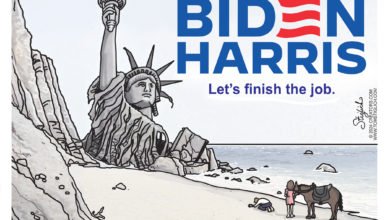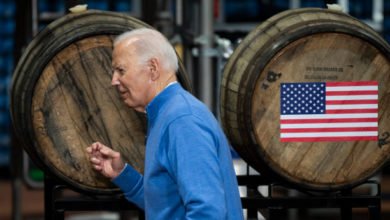How Slavery Can Be Used as a Litmus Test for Claims about Liberty
Liberty means renouncing the coercion of others. That is why slavery—its opposite—is a useful touchstone in evaluating claims that coercion—increasing the enslavement of someone—is consistent with liberty.
As F. A. “Baldy” Harper recognized, “Strange is a concept of ‘liberty’ [where]…you enjoy the right to be forced to bow to the dictates of others.” That is, mere rhetorical tap-dancing cannot demonstrate that liberty is maintained by government acts that are consistent with slavery.
Harper used this approach in his 1949 book Liberty: A Path to its Recovery to expand on Abraham Lincoln’s statement that “We all declare for liberty, but in using the same word we do not all mean the same thing. With some the word liberty may mean for each man to do as he pleases with himself, and the product of his labor; while with others the same word may mean for some men to do as they please with other men, and the product of other men’s labor. Here are two, not only different but incompatible things.”
Consider some of Harper’s rebuttals to what are still common “liberty is not really being lost” claims, that are particularly important in an election year.
“Our liberty is maintained because the federal government can only do what advances the general welfare.”
Suppose that the master pleads innocence of slaveholding on the ground that he is spending the slave’s earnings for what he considers to be the slave’s own welfare. Would that change the degree of liberty of the slave? Is liberty to be defined in such a way as to allow me to take from you the product of your labor, so long as I claim that I shall use it for your welfare, or for the “general welfare”? Should the robbing of banks be allowable under liberty, provided the bank robbers promise to put the proceeds of the robbery to some use they claim to be worthy, or…that a majority of the people have judged to be worthy?”
“Our right to petition the government for redress of grievances guarantees that liberty is maintained.”
Being able to review a decision or to request its review…does not assure that liberty will be protected. Reinstatement of lost liberty can be requested and refused time and time again, without end. A slave, similarly, might ask his master for his freedom time and again; he is not considered to be free by reason of the fact that he is allowed to ask for liberty.
“Our power to vote prevents infringements on our liberty.”
Liberty is…the right of a person to have control over his own affairs…the expansion of governmental activities…[requires that] Minorities become the slaves of the others…Participation in these steps that make it possible for someone to rule others does not ensure liberty…it would be more accurate to say that it is a most certain path to slavery.
“Government does not violate liberty because it just provides goods and services people want.”
The excess that the government takes is no longer available for the citizen to spend as he wishes, as required under liberty…the slave who is given some turnips by his master cannot be called free economically because of the fact that he might have wanted to buy some turnips with some of his wages as a free man, had he been free. The citizen, likewise, is not judged to be free because of the fact that he might have bought, in a free market, services similar to those offered by the governmental monopoly where users and non-users alike are forced to pay the costs in their tax bills.
“Liberty is maintained because there is nothing like slavery in America today.”
Partial liberty under slavery is well illustrated…The test of economic liberty…[is] the right to the product of one’s own labor…To whatever extent he is deprived of these rights, he is to that extent a slave.
The superstition prevails that if the government takes from unwilling people the product of their labor to pay for governmental costs of which they disapprove, it becomes a commendable act unlike that of the master taking from his slave…as though…robbery becomes a commendable act if a large enough number of people approve of it.
“Our voluntary tax system keeps our tax burdens consistent with liberty.”
The mere fact of taxes having been paid is no test of basic willingness…that a slave works in his master’s field…is no evidence that slavery is not involved…Acquiescence of the citizens to that part of their taxes in excess of what is necessary to preserve liberty is no evidence that liberty has not been lost thereby.
F. A. Harper powerfully used slavery as a litmus test for claims that deprivations of our liberty still leave us with liberty. “That some other person or persons will decide what you shall do, and force you to do it…[is] a definition of slavery rather than of liberty,” because “Liberty… specifies the right to do what [one] desires, rather than the obligation to bow to the force of others in doing what they desire him to do.” And he saw how high the stakes were: “It is, in fact, a main purpose of liberty that the blind are free to follow those who can see. The danger is that in the absence of liberty the blind may become authorized to lead those who can see—by a chain around their necks!”
Liberty: A Path to its Recovery by F. A. Harper is available for free on FEE.org.
Content syndicated from Fee.org (FEE) under Creative Commons license.
Agree/Disagree with the author(s)? Let them know in the comments below and be heard by 10’s of thousands of CDN readers each day!




